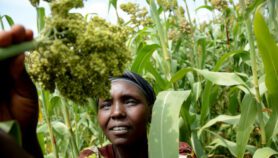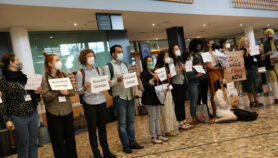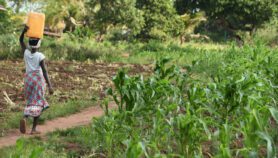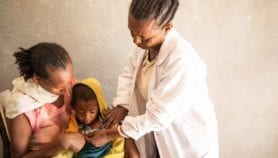23/06/21
Humanitarian spending plummets as UK, Saudis make cuts
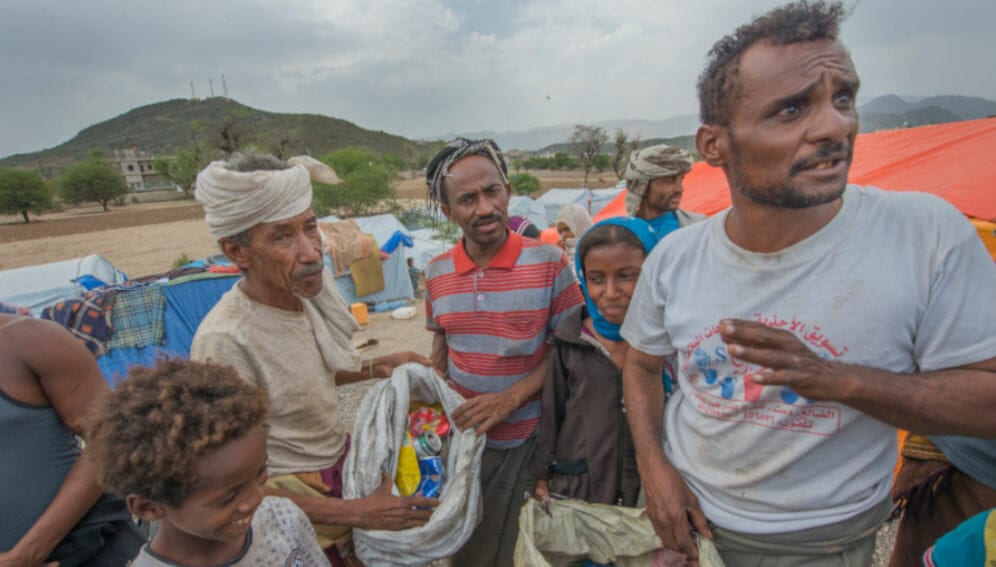
Send to a friend
The details you provide on this page will not be used to send unsolicited email, and will not be sold to a 3rd party. See privacy policy.
International humanitarian spending fell by $284 million between 2019 and 2020, despite unprecedented need as a result of the COVID-19 pandemic, new research shows.
The figures published by Development Initiatives, a data-focused international development organisation, show that the UK government is responsible for the largest cuts, reducing humanitarian spending by $900 million.
This offsets increased spending by other key donor countries, the report says, including Germany which upped contributions by 27 per cent.
“The poorest people are increasingly concentrated in countries where there are a whole range of intersecting vulnerabilities.”
Angus Urquhart, Development Initiatives
The Global Humanitarian Assistance Report 2021 estimates that, in 2020, 243.8 million people in 75 countries were in need of humanitarian assistance — an increase of 19 million people and 10 more countries than in the previous year.
Angus Urquhart, co-author of the report, said: “There are more locations into which assistance is going, some of those just exclusively for COVID-19 needs. That pool of money has been stretched further and wider than it’s had to in previous years. And that’s on top of a system that was already very strained before the pandemic hit.”
The report concludes that the 1.2 per cent reduction in global humanitarian spending was largely due to the UK decreasing contributions by 31 per cent, and Saudi Arabia reducing contributions by 53 per cent.
Of the world’s five biggest donors, the UK was the only country to announce a reduction in humanitarian aid, cutting funding from $3 billion to $2.1 billion. The other four top donors — US ($8.8 billion), Germany ($3.7 billion), Netherlands ($1.0 billion) and Sweden ($0.9 billion) — increased humanitarian spending.
Funds redirected
Despite many other crises being compounded by the COVID-19 pandemic, Development Initiatives found that billions of dollars in funding have been diverted from existing needs.
UN-coordinated appeals increased from 36 in 2019 to 55 in 2020 – 17 of which were created solely to tackle needs arising from the pandemic. Many of these appeals failed to meet their funding target, leading to a shortfall of $18.8 billion – the biggest on record.
Overall, Yemen was the worst hit by the decline in international aid, seeing a 46 per cent decrease in funding between 2019 and 2020, according to the report. It says the country was previously the world’s largest recipient of humanitarian aid and more than 24.2 million people are still in crisis as a result of the ongoing conflict.
Urquhart believes that record levels of humanitarian need cannot be met with the current system which is beset by persistent underfunding and inefficiency. He says the COVID-19 pandemic has compounded these weaknesses and may result in countries entering a period of protracted crisis.
In 2020, 10 new countries faced humanitarian crises, according to the report, which warns that some of these countries will be ill-equipped to respond adequately.
“You need to be getting more development assistance, alongside humanitarian assistance into these countries that are particularly vulnerable,” added Urquhart. “Because unless that happens, then you’re going to just get stuck in this cycle of crisis and people aren’t going to be able to remove from humanitarian need. And that just builds more and more stress into the humanitarian system.”
Development Initiatives reports that 34 countries are currently experiencing protracted crisis. The cycle of crisis can be seen in the low average single-dose vaccination rate in these countries — 2.4 per cent, compared to an average of 12.5 per cent in other developing countries.
Weathering shocks
Between 2010 and 2020 the number of people living in extreme poverty decreased by 53 per cent. However, the proportion of people living in extreme poverty in fragile states increased, the report says.
“The poorest people are increasingly concentrated in countries where there are a whole range of intersecting vulnerabilities,” said Urquhart. These populations have reduced resilience. So when a shock hits — whether it’s political, economic or environmental — their ability to cope with or respond to the impact is reduced.
The report says the COVID-19 pandemic has reinforced the need for long-term resilience building to help countries withstand future shocks, such as the impacts of climate change.
However, UK scientists say cuts to the UK Research and Innovation (UKRI) budget are affecting hundreds of projects aimed at doing just that.
Jenni Barclay is a professor of volcanology at the University of East Anglia in the UK who works on ways to mitigate volcanic risks. She said: “I’m unsurprised that there has been such a strong recorded impact from the choices made with the British development budget. This is something that we’re seeing across the UKRI-funded projects which have been so badly affected.
“It’s a demonstration of the fact that these things are interlinked and you can’t just suddenly stop a development process or a research process and expect there not to be consequences.”







